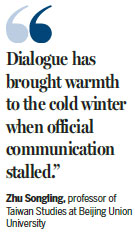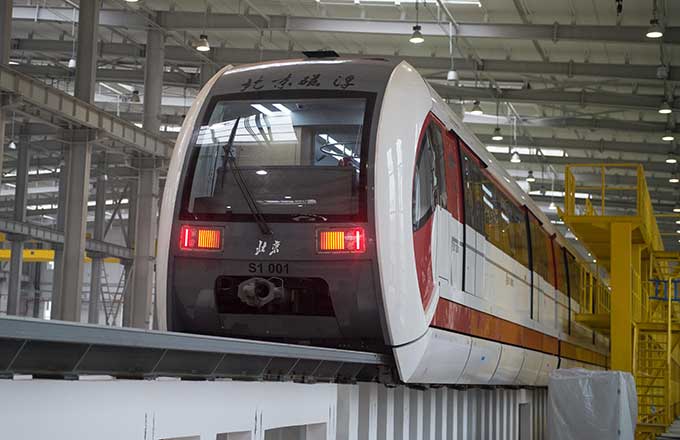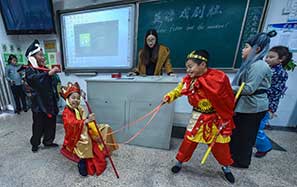CPC, KMT keep channel open for cross-Straits talks
Despite of the tense cross-Straits relations, the Chinese mainland and Taiwan are still maintaining exchanges through political party communications.
The Communist Party of China and Taiwan's Kuomintang held a dialogue on Friday in Beijing. Zhang Zhijun, the mainland's Taiwan affairs chief, met with the KMT delegation, led by the party's Vice-Chairman Chen Chen-hsiang.
They discussed party communication at the grassroots level, the protection of people's welfare and communication between youths on both sides.
The dialogue aims to set the peaceful development of cross-Straits relations back on track, uphold the one-China principle and oppose "Taiwan independence", promote social and economic cooperation and improve people's welfare, said Zhang, head of the Taiwan Affairs Office of the State Council.
"The goal was to carry out the common understanding between President Xi Jinping and Taiwan's KMT leader Hung Hsui-chu," Zhang said.

Xi met with Hung in early November in Beijing and made a six-point proposal on cross-Straits relations, including adhering to the 1992 Consensus, resolutely opposing forces that support "Taiwan independence" and promoting social and economic cooperation between the two sides.
Zheng Zhenqing, an associate professor of Taiwan studies at Tsinghua University, said that because the official communication channel between the mainland and Taiwan has been cut off, dialogue between the CPC and KMT and people-to-people communication are the main forms of exchange between the two sides.
The KMT is not the ruling party, Zheng said, so the communication between the political parties is a non-official channel.
Since the Democratic Progressive Party took over leadership in Taiwan in May, cross-Straits relations have worsened and official communication has been suspended.
"Dialogue has brought warmth to the cold winter when official communication stalled," said Zhu Songling, a professor at the Institute of Taiwan Studies at Beijing Union University.
"The dialogue between the two parties becomes an important platform for seeking peaceful development, promoting people-to-people communication and economic exchanges and improving people's welfare on both sides," he said.
In Washington on Wednesday, State Department spokesman John Kirby said the United States has a deep and abiding interest in cross-Straits stability. "We believe that dialogue between the two sides has enabled peace, stability, and development in recent years," he said.

























